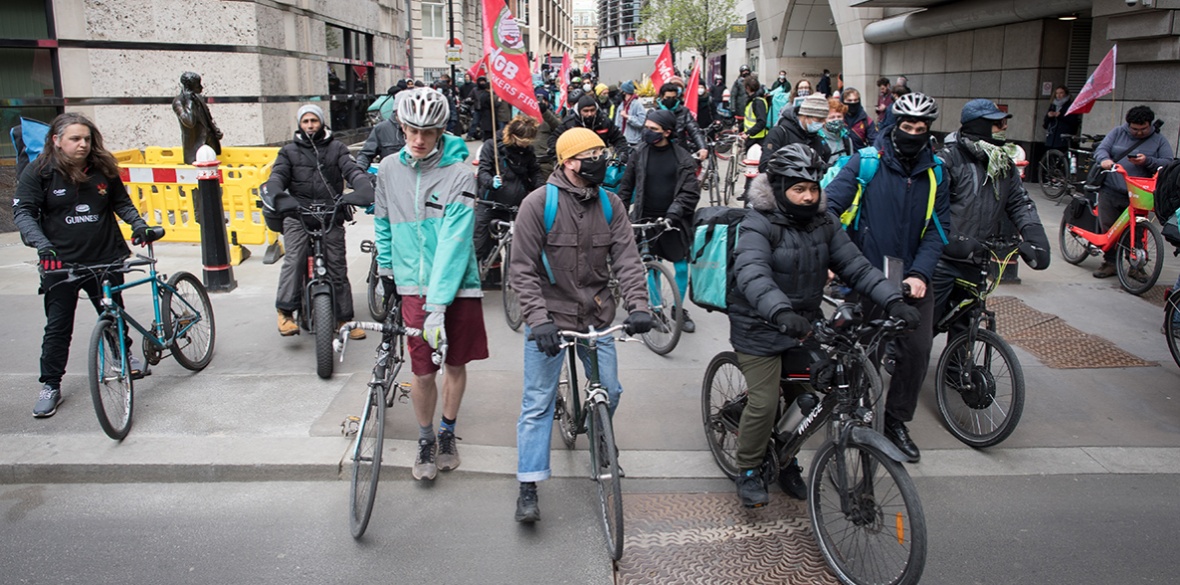SHOCKING new figures from the TUC reveal job security as a matter of life and death.
Lacking employment rights such as sick pay, workers on zero or short-hours contracts are more likely to have to continue working when sick — exposing their colleagues to infection.
They are paid less, reducing the likelihood that they have savings to fall back on — which has the same effect.
They are easier to dismiss. They are less likely to be unionised, making it far harder for them to challenge unsafe working conditions.
In some sectors like app-based delivery services such as Deliveroo and Uber, algorithms used to allocate work can make it dangerous to turn down jobs in case no more are offered; the same menace is wielded by human managers in less high-tech fields.
For too many this has amounted to a death sentence. Those on insecure contracts are twice as likely to die from Covid-19.
It has also catastrophically undermined efforts to suppress the spread of the virus across the country. Agency workers spread the virus from care home to care home in 2020: a grim consequence of outsourcing.
Workplace outbreaks such as those in Leicester’s textile factories were the first indication of the second wave last year.
This super-exploited layer of casualised labour has grown enormously in recent years — with the number of workers on insecure contracts rising from one in 20 just five years ago to one in nine today.
This growth is not a product of technology, let alone of workers’ desire for “flexible” work: for those trapped on them, short and zero-hours contracts are anything but flexible, leaving workers at the mercy of their bosses and forcing them to be ready to work at all times in case a shift is offered.
It is a result of government policy — the fruit of the “austerity” drive of a decade of Tory rule, which involved sweeping culls of public-sector jobs and intensified outsourcing by public services and cash-starved local authorities.
Despite its disastrous consequences for Britain’s ability to handle coronavirus, current pressures conspire to accelerate the spread of insecure work.
Rising unemployment, and the fire-and-rehire policy being adopted by cynical employers keen to exploit the crisis to drive down pay and conditions, will feed its growth.
Unless we can force a political shift. Attention is being focused on the sector as never before: the Supreme Court’s ruling that Uber drivers are workers, echoed by Italian courts with regard to couriers for a number of food delivery companies, should prompt a mass unionisation drive to secure this status for all such workers.
Better still is legislation passed in Spain — drafted by the Communist Party-led Labour Ministry — to force such companies to disclose the algorithms they use to deploy and discipline their workforces.
In the United States, the Joe Biden administration’s elderly and childcare investment plan includes provisions to raise pay and facilitate trade union access to the care sector with the explicit aim of creating a unionised, better-paid workforce.
Nobody can any longer claim that it is impossible to confront the market forces driving insecure work and poverty pay. Big efforts to do so are under way in multiple developed countries.
Labour has retreated from the pro-worker agenda of the Corbyn period — publicly disowning the public-sector pay rises it promised in 2019 and going quiet on zero-hours contracts (which it had pledged to ban) and the renationalisation of public services (which would help tackle outsourcing).
But the ground is fertile for such an agenda. The trade union movement can take it forward directly through a national campaign for proper pay and proper jobs.
With so many fearful and destitute as we come out of the pandemic, such a campaign could catch the attention of the whole country — and mount enormous pressure on politicians and business.









